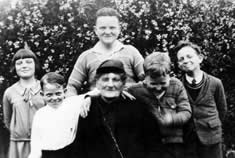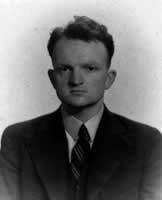But one waited for the next publication of Eliot and of Keynes. And
one was also watching some of the great scientists like Einstein. A
little later on WB Yeats. But only for a short period before his death.
But they were contemporaries, still living and still to be watched for
what would come next. A very exciting thing in the thirties.
Eliot of course turned to religion which was sufficient to make me
pause at being a scoffer of...at religion. And I’m still not a
scoffer at religion. That’s an issue in itself. Yes, Eliot would
have been, I’d say 1936, a very big...a very big...his essays...his
Selected Essays had been published by then and they also I
read and reread. I borrowed them innumerable times. And his Essays
Ancient and Modern, those two books, from the Municipal Library,
which was a great source of such good books.
EK Chambers’ two volume work, Shakespeare: a Study of Facts and
Problems, I’ve read and reread and I’m happy to say that
in recent years I paid a hundred dollars to have...to get the two [volume]
set...set from America. It represented the fascination of an unsolvable
mystery about Shakespeare done by a scholar whom I greatly admired.
These were, you know, dilettantish, undisciplined interests, which
I think everyone must have in these days of specialisation.
...there’s that funny passage in EM Forster...in one of his essays...he
quotes at the beginning of it a line of Matthew Arnold’s, one
of his...in a poem by Matthew Arnold. “Who props, thou askd’st,
in these dark days, my mind?” Now Forster says immediately, “That
word ‘askd’st’ is a problem,” (Laughs). But
he goes on then to enumerate the authors, in particular Samuel Butler,
who in fact were to him a prop. Matthew Arnold’s choice were all
Greek authors. Homer, Epictetes and Sophocles. Epictetus and Sophocles.
Well now I suppose we all do have those props and in all my life, you
know, I’ve liked to have alongside my bed some or other author.
Eliot’s Selected Essays, certainly, and various other people like
that, you like to keep by your bed as someone, you know, the odd half
hour or ten minutes even, you pick up for total removal from the world
you are in. On a plane that you think is...is good and interesting.



